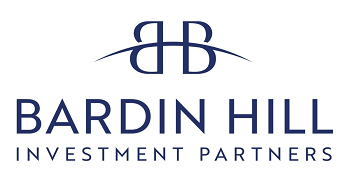Bardin Hill Investment Partners, LP is a large hedge fund manager with its main office located in New York City. The firm employs a team of 33 financial advisory professionals to help manage its 34 pooled investment vehicles, also known as funds. Across these funds, the firm has over $8.7 billion in client assets under management (AUM). The firm works with funds, as well as separately managed accounts.
Not everyone is eligible to take part in investing in a hedge fund. If you're thinking about the best ways to invest your money, it might be helpful to consult and work with a local financial advisor.
Bardin Hill Investment Partners Background
Bardin Hill Investment Partners has been in business since 1997, when it's oldest advisor affiliate became registered with the SEC. The firm works with a variety of clients, including pension funds, endowments, foundations, financial institutions, insurance companies, funds of funds and accredited individual investors. Clients invest with the firm from all around the world.
Bardin Hill Management Partners LP, NGI Strategic Holdings (A) LP and Cairo Management Holdings, LP are the principal owners of Bardin Hill Investment Partners. The firm is also privately owned by 13 of its partners, with Jason Dillow serving as CEO and chief investment officer (CIO), as well as the sole indirect principal owner of the firm.
Bardin Hill Investment Partners Investment Philosophy
Bardin Hill Investment Partners looks for market inefficiencies and situations where research suggests that risk might be lower than normal. However, the firm also focuses on merger arbitrage opportunities. When it comes to specific investments, the firm looks to credit strategies and event-driven equities. Bardin Hill uses fundamental and bottom-up analysis to inform its investment decisions.
When it comes to separately managed accounts, Bardin Hill tailors investment advice based on client needs. This involves meeting directly with clients to determine investment objectives.
Largest Hedge Funds Managed by Bardin Hill Investment Partners
HCN LP
- AUM: $643,615,720
- Minimum: $200,000,000
- Beneficial Owners: 2
Bardin Hill Event Driven Master Fund LP
- AUM: $373,950,296
- Minimum: $5,000,000
- Beneficial Owners: 62
Bardin Hill Opportunistic Credit Master (ECI) Fund LP
- AUM: $286,147,000
- Minimum: $10,000,000
- Beneficial Owners: 32
Halcyon Vallee Blanche Master Fund LP
- AUM: $221,985,635
- Minimum: $5,000,000
- Beneficial Owners: 1
Praetor Fund I A Sud Fund of Praetorium Fund I ICAV
- AUM: $145,403,796
- Minimum: 1,000,000
- Beneficial Owners: 7
Fees at Bardin Hill Investment Partners
Bardin Hill Investment Partners charges management fees for all of its funds and accounts. The firm also charges performance-based fees for its funds and accounts. Fees for separately managed accounts are customized based on its individual agreement, so they can vary widely.
What to Watch Out For
Bardin Hill Investment Partners' SEC-filed Form ADV has no legal or regulatory disclosures present on it.
Only accredited investors have the ability to invest in hedge funds. In order to become an accredited investor, you must have at least $200,000 in earned income in each of the past two years ($300,000 for couples). There must also be a reasonable assumption that the same trend will continue during the current year. Another way to become an accredited investor is to have at least a $1 million net worth, minus the value of your primary residence. You can meet that requirement either on your own or together with a spouse.
Becoming a Client of Bardin Hill Investment Partners
Remember that only accredited investors can invest in hedge funds. Additionally, Bardin Hill only works with high-net-worth individuals when it comes to separately managed accounts. If you meet at least one of these requirements, you'll want to get in touch with Bardin Hill for more information. You can go online and submit a contact form, or call if you prefer working over the phone.
All information is accurate as of the writing of this article.
Investing Tips
- Investing with a specific goal in mind can be difficult, but a financial advisor can help you make sense of things. SmartAsset’s free tool matches you with up to three financial advisors in your area in just five minutes. If you’re ready to be matched with local advisors, get started now.
- When it comes to investing, it pays to be on top of your game. SmartAsset has many free online resources and tools to help you achieve excellence in your portfolio. For instance, our free asset allocation calculator can help you build a portfolio that's aligned with your risk tolerance and time horizon.

